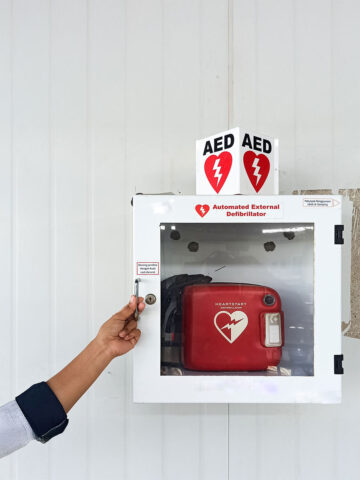Featured pediatric expert
Wendy N. Gray, PhD, ABPP
Dr. Gray is a board-certified psychologist at CHOC. She earned her doctorate degree in clinical child and pediatric psychology from the University of Florida and completed her residency and post-doctoral fellowship in pediatric psychology at Cincinnati Children’s Hospital Medical Center. She specializes in the treatment of anxiety and depression in teens and young adults with chronic health conditions, particularly those with Crohn’s Disease and Ulcerative Colitis.

Transcription
Melanie Cole (Host): Welcome to Long Live Childhood, a pediatric health and wellness podcast presented by Children’s Health of Orange County. Together, we can keep kids happy and healthy. I’m Melanie Cole, and I invite you to join us as we discuss transitioning to adult care, how to help your child transition from pediatrics to adult care. Joining me is Dr. Wendy Gray. She’s a Pediatric Psychologist with Children’s Health of Orange County. Dr. Gray, thank you so much for joining us today. Can you start by telling us a little bit about your expertise in this topic and what are some of the challenges teens and young adults face when transitioning to adult healthcare?
Wendy N. Gray, PhD, ABPP (Guest): Absolutely thank you for having me. I have been conducting research and working with children and adolescents in the area of transition to adult care since about 2013 and have worked collaboratively with parents and patients to develop Transition to Adult Care Programs, to help make that process a little bit easier.
One of the reasons why we recommend really focusing on transition to adult care is really thinking about the future. So many of us are grounded in the present moment and a lot of times we have major milestones coming up that we don’t fully prepare for. And one of the things I see with a lot of our teenagers is that their parents love them so much, and they’re so involved in their healthcare that sometimes that gets in the way of the teenager developing some of the skills that they’re going to need when they turn 18 and perhaps move away from home and go to college. They haven’t learned those skills yet because mom and dad always did it for them.
And then when they’re on their own for the first time, they really don’t know how to do much of the basics like getting a refill from the pharmacy, scheduling a doctor’s appointment, communicating with insurance. So that’s one of the reasons why we recommend helping adolescents build those skills while mom and dad are still involved.
Host: Well, any parent that’s asked their late teen child to make their own doctor’s appointment can really relate to this episode today. So I’d like you to tell us, as we’re talking about the common medical and even psychosocial complications that children and teens face, as they make that transition to adult care, what does a program like that entail? And what can we do to help that along?
Dr. Gray: So I think that the best thing that we can do in developing a program to help our kids transition to adult care is really start at a younger age and think about what does it take to be fully independent in the management of your own healthcare. And as a parent, thinking about the things that you do for your own health care, the things that you do for your child’s healthcare. If you can make a list of all of those things, that’ll give you a sense of what your child will need to be able to manage when they reach that point where they’re independent. One of the biggest surprises for parents is that when their child turns 18, in most states, that’s the age of majority, they become the owners of their own healthcare information. So a lot of parents will be locked out of the child’s healthcare because legally the child is now the owner and we are required to communicate with the now adult who’s now the owner of their healthcare.
So, thinking about what is it gonna take to be independent and kind of working our way backwards and teaching those skills slowly over time is the best approach.
Host: When you say discussing this with even younger children, what age are you talking about? Is there an optimal transitional age now? For instance, my son turns 22 this year and the pediatrician says, this is the last time I’m going to see you. So we have to find him a new physician, a primary care provider for that exact transition. Is there an optimal age when we should start discussing this and an optimal age when that transition actually takes place?
Dr. Gray: Yes, there is. And I will say that there is going to be some variability based on each child’s maturity and intellectual capacity. But that situation you discussed is very, very common where you show up to your pediatrician, and you’re told at that moment that today is your last visit. And it can be a bit of a shock if those conversations have never been had in the past.
So at our institution and in line with national guidelines that you would see at Got Transition, we recommend that those conversations begin at the age of 12. And everybody knows that that’s going to happen at some point, whether the transfer to adult care occurs at 18, 21, 25, that really is going to depend on the provider and the policies that they have at their particular institution or practice.
But as long as we make this a part of the conversation, we can start slowly preparing for that process so that you do not end up in that situation where it’s a surprise at your last clinic visit. And you have a lot of questions or you kind of feel like you’re trying to figure out a lot of things all at once. And that’s what we’re trying to avoid.
Host: Why can’t we keep our pediatricians forever? They are really the best doctors around. Now tell us the role of the child in this transition versus the parent or caretaker and how can the medical home and that child’s pediatrician serve as an advocate for their patients as they transition, do they help them find physicians? What’s the role of all of us, the child, the pediatrician in the medical home and the parent or caregiver?
Dr. Gray: Okay. Well, let’s start out with the parent because I believe they are the most important person to facilitate this process. So the parent role will change over time. When your child is young, you are managing pretty much everything for them as well you should because younger children really aren’t capable of managing much on their own. But as your child starts to get older, you start to shift from the role of a manager who’s in charge of everything to kind of a, a more behind the scenes supervisor. So you start thinking about what are low level skills that I can start teaching my child. If my child needs to take medication on a regular basis, then maybe one of the first skills I teach them is how to fill their pill box or how to set an alarm on their phone so that I can start teaching them to take their medication independently.
Maybe when they’re a little bit older, let’s say 15, 16, that’s when I’m teaching them how to call the pharmacy and ask for a refill, there are a lot of great apps. Some pharmacies even have an app on your phone that you can just scan the barcode on your medication to request a refill. Thinking about first, whatever skill you’re trying to teach, modeling it, showing your kid how to do it, explaining what you’re doing as you’re going along.
And then maybe after you’ve done that a few times, having your child try that skill on their own with you supervising and providing feedback. And eventually that will transition to the child assuming independence over that task with you still supervising to make sure it gets done. So that’s really the role of the parent to gradually step back a little bit at a time, knowing that you’re still there for your child as their safety net, if they are truly unable to accomplish that task.
The child’s role is really to start to assume some more independence and responsibility over their care. So a lot of pediatricians will start to meet one-on-one with teenagers as part of the clinic visit without mom and dad there. A lot of times when we have a kid who is asked a question by the doctor, they usually look to their mom or dad to answer instead. And once mom and dad is not in the room, the onus is really on them to know how to answer those questions, to ask those questions and maybe have some discussions about more sensitive topics that kids would feel more comfortable talking to their doctor without mom and dad present. So really the role of the child is just to start to learn and practice different skills, knowing that it’s going to feel awkward and difficult at first.
And they may not even want to do it because to be honest, it’s a lot easier when someone does something for you that you don’t want to do, but ultimately it’s in their own best interest to start developing some of that independence. The role of the pediatrician or the any pediatric provider is really to have those one-on-one meetings with a teenager to start modeling the fact that they are going to be the owners of their own health care once they turn 18. So having regular conversations about, okay, when you turn 18, you’re going to be in charge. These are the things that are going to change for you. What do you know how to do right now? What don’t you know how to do, how can we help you develop X skill, whether it’s scheduling a doctor’s appointment or calling the doctor, if you need to cancel. How do we get you more comfortable with those skills and possibly role-play some of those discussions so that they can become more confident in their own skillset by the time they move to the adult care setting.
Some pediatricians will have recommendations for the next adult provider and others won’t because it’s highly dependent on your insurance coverage. So when your pediatrician doesn’t have recommendations for who that next provider would be, that’s where word of mouth, talking to other parents definitely comes in handy as well as consulting with your insurance plan to find out what providers are in network and possibly doing research on these providers, looking at ratings online to see who might be the best fit for your child.
Host: Boy I remember the first time I didn’t go into the room with my daughter and my son. And it’s hard for parents to sit out in the waiting room, knowing that pediatrician is in there asking questions and you can’t hear what’s going on. Obviously Dr. Gray, it’s different for children with chronic conditions. What is different if a child is not really capable of managing the health on their own, or if there is just a little bit of a delay in that situation, then how involved should we be?
Dr. Gray: I think that that is going to depend on the extent to which the teenager is able to manage any skill on their own. If we are dealing with a teenager who is not capable at all, due to a severe developmental delay or severe intellectual disability, that parent will be in charge pretty much for the rest of their child’s life. And that’s when discussions about shared decision making, such as conservatorship should begin probably around the age of 16 to make sure that any legal steps are taken in advance of that 18th birthday so that the parent can continue to be involved and continue to be the primary caregiver for that child.
But am a firm believer in that if a teenager is able to do any skill, we should give them that support and encourage any independence as long as it is appropriate, given their capacity.
Host: What a great point you just made and absolutely great advice for parents. As we wrap up, where can we go if we need more help and give us your top recommendations that you’d really like parents and caregivers to know when they’re creating that successful transition experience and helping their child transition to adult healthcare.
Dr. Gray: So, one of the things that I’ve heard a colleague say in raising her own children is I am not raising a child, I am raising a future adult. And when you think about that, it really changes your mindset to think about what do I need to do to make this child independent and get them to the point where I can trust that they will do what they need to do, or if they don’t know the answer, they will know to come to me or to come to someone else to get the answers that they need. So this is truly an investment in your child’s future success and being able to step back a little is very anxiety provoking.
And I would just encourage you to trust the parenting that you have already given to your child, that they have certain skills that they’ve learned from you and model and share what you’re doing and explain what you’re doing, because they can soak up that information even if they don’t seem like they’re paying attention, or they really don’t want to watch you. They are learning by observing you. Some great resources to check out would be on a national level the Got Transition website, which is a national initiative to improve transition to adult care practices. There is a specific tab on that website for parents, and it provides excellent guidance on how to support your child making that transition to adult care.
There’s also a tab for kids and teenagers that’s really targeted toward them and teaching them what might be a good thing to do or what skills they can start to learn. And then on a local level, for those who are in the Southern California area, the Children’s Health Care Orange County website, we have a transition to adult care website, which is www.choc.org/a2b, so choc.org/a2b.
Host: Thank you so much, Dr. Gray, what an informative podcast this was. You really gave parents a lot to think about and we do need to start thinking about it at those younger ages, like you said. Thank you so much for joining us. And for more pediatric health and wellness tips, or to get connected with one of our providers, for information on how to help your child transition to adult care, please visit choc.org. Thank you so much for listening to Long Live Childhood, a pediatric health and wellness podcast presented by Children’s Health of Orange County. Together, we can keep kids happy and healthy. Please also remember parents, to share on your social channels as we’re all learning from the experts at CHOC together.
I’m Melanie Cole.
For more health and wellness resources from the pediatric experts at CHOC, sign up for the Kids Health newsletter.
Find a CHOC Primary Care Pediatrician
From babies to teens, pediatricians from CHOC’s Primary Care Network partner with parents to offer immunizations, sick visits, sports physicals and more.




